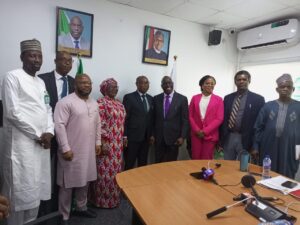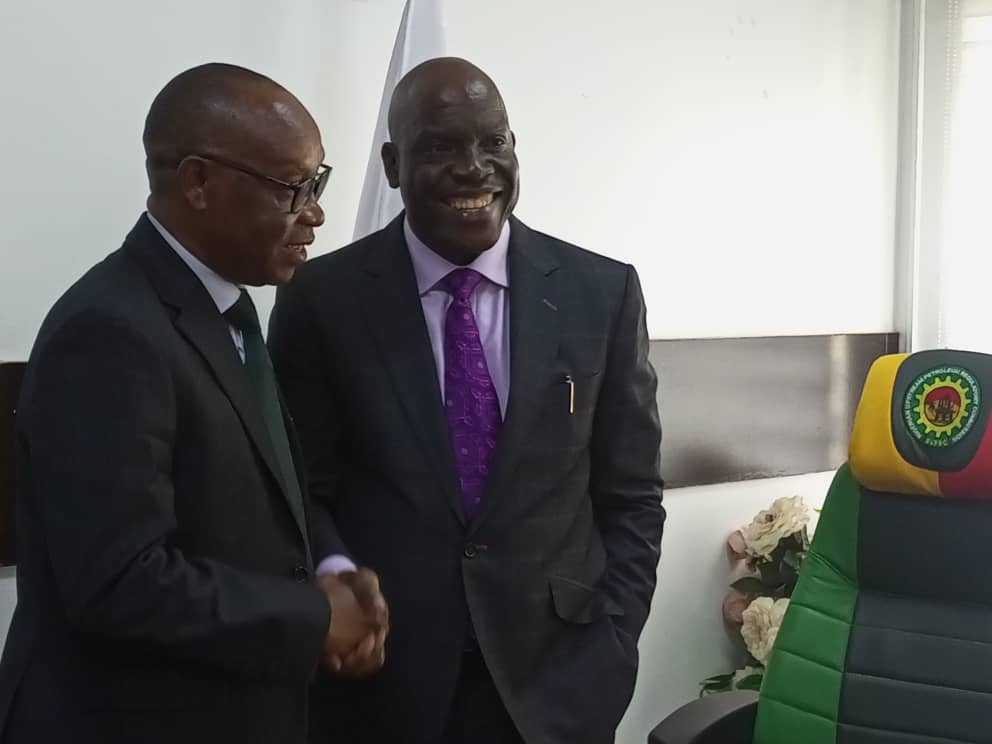… Nigeria lost 619.7m barrels crude between 2009-2020 – NEITI
The Nigerian Upstream Petroleum Regulatory Commission (NUPRC) on Thursday signed into law seven (7) concluded regulations in order to foster a more business-friendly environment in the nation’s upstream oil and gas industry.
The Commission Chief Executive, Engr. Gbenga Komolafe who signed the concluded regulations in Abuja, said it represents a significant milestone achievement for the Commission in it continues stride towards the attainment of the goals of the Petroleum Industry Act (PIA) and the reformation of the upstream petroleum sector.
Empowered by the PIA 2021, the Commission launched today seven concluded regulations out of the thirteen drafted regulations that were presented for discussion during phase 1st, 2nd and 3rd of consultation with stakeholders between 2022 and 2023 are:
The Nigeria Upstream Petroleum Measurement Regulations, 2023; Production Curtailment and Domestic Crude Oil Supply Obligation Regulations, 2023; Frontier Basins Exploration Fund Administration Regulations, 2023; Nigeria Upstream Decommissioning and Abandonment Regulations 2023; Significant Crude Oil and Gas Discovery Regulations, 2023; Gas Flaring, Venting and Methane Emission (Prevention of Waste and Pollution) Regulations, 2023 and Nigeria Upstream Petroleum Unitization Regulations, 2023.
The other six (6) regulations yet to be approved and signed into law include: Upstream Petroleum Fees and Rents Regulations, Acreage Management (Drilling & Production) Regulations, Upstream Environmental Remediation Fund Regulations, Upstream Petroleum Safety Regulations, Upstream Petroleum Environmental Regulations and Advance Cargo Declaration Regulations.
According to the Commission Chief Executive, all signed regulations are revolutionary in nature which are aimed at providing a regulatory environment that assures efficiency, predictability, clarity, and effectiveness to the industry in the discharge of the Commission’s mandate.

“These regulations are significant in line with the recent happenings in the oil and gas industry. For example, the Nigeria Upstream Petroleum Measurement Regulations, 2023 heralds a new approach in the regulation of petroleum production accounting process for fiscalization purposes in the sector.
“It will ensure flawless measurement of petroleum production in an efficient, accurate, error free and standardized manner eliminating errors in production accounting and ensure enhanced revenues for the government and the holders of Petroleum Prospecting Licences and Petroleum Mining alike.
“Also, the Production Curtailment and Domestic Crude Oil Supply Obligation Regulations, 2023, which coincidentally is coming into effect at the time that the 650 barrels capacity Dangote Industries Refinery in Lagos is coming on stream would ensure the continues and adequate supply of crude oil feedstock to the nations rapidly expanding refining industry.
“The Frontier Basins Exploration Fund Administration Regulations, 2023, another entirely novel regulations in the sector, would bring into effect a structured regulatory regime in the conduct of exploratory activities and search for hydrocarbons in the nations frontier basins in a manner that is transparent and targeted at speedy de-risking of those areas for petroleum development and production.
“The Gas Flaring, Venting and Methane Emission (Prevention of Waste and Pollution) Regulations, 2023 codifies commercial ideas and practices currently being deployed by the Commission in the almost concluded phase one of the novel Flare Gas Commercialisation Program of the Federal Government as well as other provisions aimed at eliminating the flaring of gas and conforming with emission reporting requirements under international laws”, said Komolafe.
Regardless the rigorous and strenuous exercise characterised by several challenges at different stages of the regulation making process, Komolafe expressed satisfaction of the outcome of the process which was as a result of of critical thinking, vigorous engagements with the industry stakeholders, careful evaluation, and hard work by the Commission’s Regulation Development Team, whose efforts are a testament to the Commission’s continuing strive towards excellence in the discharge of its functions.
Also speaking, the Executive Secretary, Nigeria Extractive Industries Transparency Initiative, Dr. Orji Ogbonnaya Orji, while commending the Commission Chief Executive for taking a very fundamental step in implementing the PIA provisions, revealed that between 2009 to 2020, Nigeria lost exactly 619.7 million barrels of crude either stolen or not accounted for, which is amounted to 46.16 billion dollars. And if converted to in Naira official rate will amount to 16.25 trillion Naira.
He lamented that no nation can survive such a magnitude of arrangement, yet Nigeria kept borrowing to fund to key national infrastructure such as roads water, electricity and education that will be able to stabilize country and cause it citizenry live in a more socially harmonious society.
Ogbonnaya who earnestly acknowledged Engr. Komolafe for his strong-will in developing laws that will guide the activities of the upstream sector to success, reaffirmed NEITI commitment to work its allies in the civil society, the media and all member countries to build a national and international affiliation and Collaborate with NUPRC to ensure all efforts yield very visible impact.
